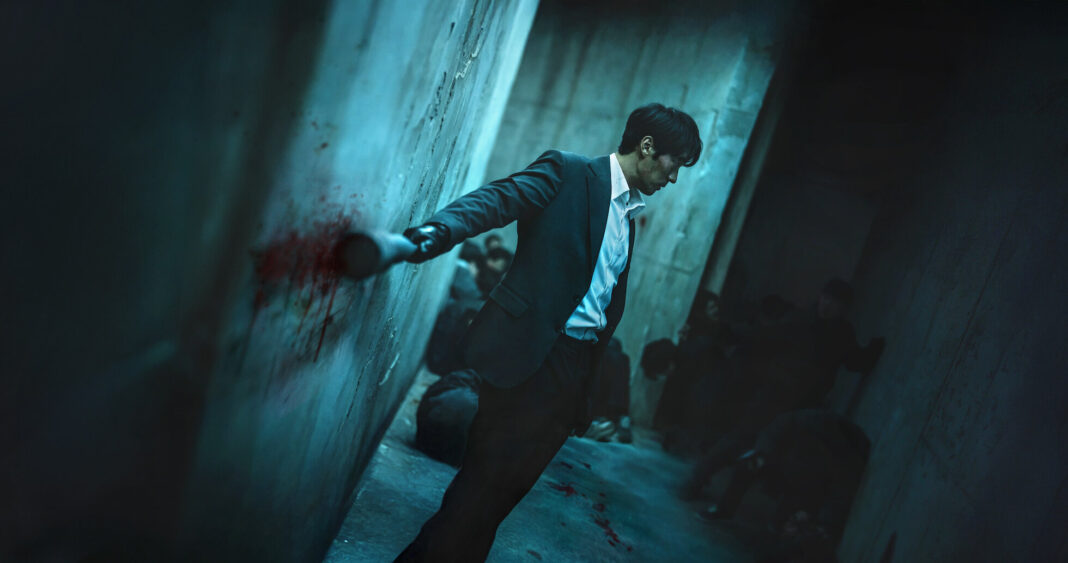In the golden age of international streaming, South Korea has mastered the revenge thriller—and Mercy for None stands tall among its finest exports. With visceral action, relentless pacing, and a brooding lead performance by So Ji-seob, this Netflix original feels like the unofficial John Wick spinoff audiences never knew they needed.
But make no mistake: Mercy for None is no carbon copy. Where Hollywood polishes its vengeance with gun-fu glamor, this series wades into the dirtier waters of hand-to-hand brutality, spiritual anguish, and the haunting cost of brotherhood. In true K-thriller fashion, it trades clean kills for chaotic combat, where the wounds are raw and personal, and every punch carries the weight of grief.
Set more than a decade after legendary gangster Nam Ki-jun (So Ji-seob) has severed ties with the underworld—literally, by slicing his Achilles tendon—the story erupts when his younger brother, Nam Ki-seok (Lee Jun-hyuk), is murdered in a cold-blooded ambush. The stoic antihero resurfaces from retirement with quiet fury, carving his way through Seoul’s criminal elite in a bid for vengeance that is less about justice and more about emotional reckoning.
What elevates Mercy for None from genre familiarity is its immersive commitment to grounded violence. Ki-jun doesn’t wield guns. Instead, he fights with fists, knives, and anything within reach—channeling the grittiness of Oldboy’s iconic hammer scene more than the slick ballet of Wick. The choreography is punishing, bodies are flung with jarring impact, and the camera lingers just long enough to let each crack and splatter register. Yes, the physics can border on comic-book absurdity, but the emotional texture never feels false.
At the center, So Ji-seob brings a grounded, melancholic intensity to Ki-jun. His performance is one of controlled chaos—a man who doesn’t speak much, but whose pain bleeds through every motion. His eyes do most of the talking, and when he moves, it’s with the resignation of someone who has made peace with his own damnation. While the series doesn’t dive deep into character psychology, it doesn’t need to; its emotional shorthand is clear, and the stakes remain personal.
Flanking So Ji-seob is a colorful ensemble of villains, most notably Gong Myoung as the unhinged mob heir Koo Jun-mo. He’s erratic, cocky, and completely unprepared for the storm Ki-jun brings. Veterans An Kil-kang and Heo Jun-ho round out a supporting cast of gangland titans locked in fragile truces and deadly games of loyalty. Each adds texture to a world where codes of honor dissolve under the weight of blood debts.
There are flaws, of course. Character depth often takes a backseat to the spectacle. Many players orbit around basic motivations—revenge, power, survival—without the nuance that made Parasite or Squid Game emotionally resonant. But Mercy for None isn’t trying to be a moral parable. It’s a sharpened blade of pure genre energy—sleek, merciless, and wickedly entertaining.
For fans of South Korea’s explosive thriller tradition—from The Man from Nowhere to I Saw the Devil—this is essential viewing. And for those craving the kinetic thrill of John Wick but want something more grounded, more raw, and unmistakably Korean, this is the next obsession.
Mercy for None is not subtle, but it is self-aware. It knows exactly what it’s delivering: brutal catharsis in beautifully choreographed chaos. And on that front, it delivers, blow by bloody blow.


